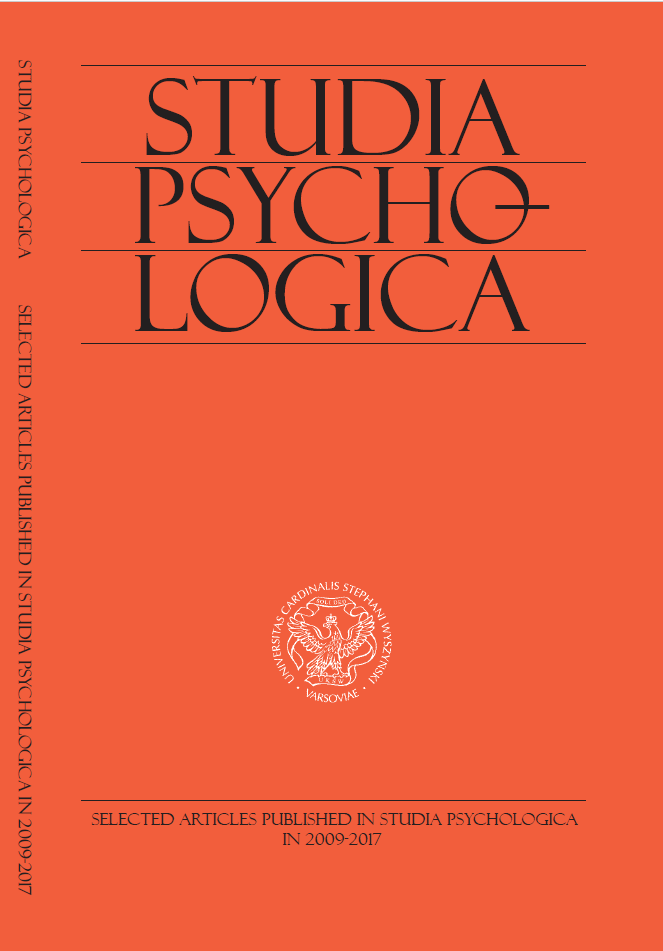The importance of language in the recognition and categorisation of emotional states. The relationship between “me” and emotion in a cultural context
The importance of language in the recognition and categorisation of emotional states. The relationship between “me” and emotion in a cultural context
Author(s): Henryk GasiulSubject(s): Semiotics / Semiology, Social psychology and group interaction, Personality Psychology, Clinical psychology, Psychoanalysis
Published by: Wydawnictwo Naukowe Uniwersytetu Kardynała Stefana Wyszyńskiego w Warszawie
Keywords: language; culture; emotion; self;
Summary/Abstract: This article concerns the analysis of the importance of language in the self-determination of one’s emotional states and his/her determination of the same in another person. In the first part of the article, the author presents difficulties related to the categorisation of emotions resulting from the use of different languages. The author goes on to prove that a broadly defined culture is of key significance for understanding emotions, with language being an indispensable dimension for naming certain emotional states. Due to the fact that emotions are specifically linked to the “subjective self ”, fundamental role should be attributed to the kind of formed mental structure that defines the character of this “subjective self ”. Collective and individualistic cultures are examples of a different formation of the structure of the “self ”. They determine the ways of experiencing emotions and the types of dominant emotional states. As the basic system of social communication, language allows these states to be given meaning, and thus explains the difference in their experiences and guides the way they are categorised.
Journal: Studia Psychologica: Theoria et praxis.
- Issue Year: 2021
- Issue No: Special
- Page Range: 165-178
- Page Count: 14
- Language: English

